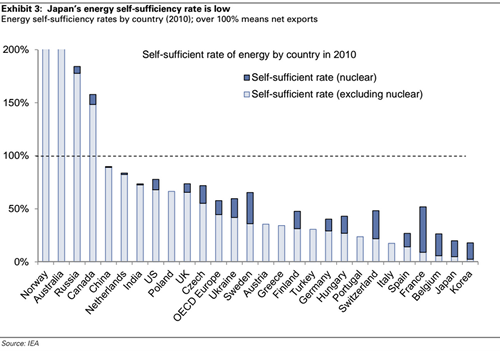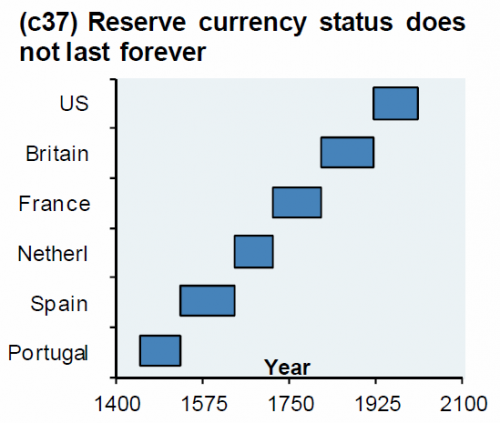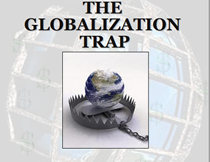|
JOHN RUBINO'SLATEST BOOK |
||||||||||||||||||||||||||||||||||||||||||||||||||||||||||||||||||||||||||||||||||||||||||||||||||||||||||||||||||||||||||||||||||||||||||||||||||||||||||||||||||||||||||||||||||||||||||||||||||||||||||||||||||||||||||||||||||||||||||||
"MELT-UP MONITOR " Meltup Monitor: FLOWS - The Currency Cartel Carry Cycle - 09 Dec 2013 Meltup Monitor: FLOWS - Liquidity, Credit & Debt - 04 Dec 2013 Meltup Monitor: Euro Pressure Going Critical - 28- Nov 2013 Meltup Monitor: A Regression-to-the-Exponential Mean Required - 25 Nov 2013
|
"DOW 20,000 " Lance Roberts Charles Hugh Smith John Rubino Bert Dohman & Ty Andros
|
HELD OVER
Currency Wars
Euro Experiment
Sultans of Swap
Extend & Pretend
Preserve & Protect
Innovation
Showings Below
"Currency Wars "
|
"SULTANS OF SWAP" archives open ACT II ACT III ALSO Sultans of Swap: Fearing the Gearing! Sultans of Swap: BP Potentially More Devistating than Lehman! |
"EURO EXPERIMENT"
archives open EURO EXPERIMENT : ECB's LTRO Won't Stop Collateral Contagion!
EURO EXPERIMENT: |
"INNOVATION"
archives open |
"PRESERVE & PROTE CT"
archives open |

Mon. Mar. 24th, 2014
Follow Our Updates
on TWITTER
https://twitter.com/GordonTLong
AND FOR EVEN MORE TWITTER COVERAGE
STRATEGIC MACRO INVESTMENT INSIGHTS
 2014 THESIS: GLOBALIZATION TRAP
2014 THESIS: GLOBALIZATION TRAP
NOW AVAILABLE FREE to Trial Subscribers
185 Pages
What Are Tipping Poinits?
Understanding Abstraction & Synthesis
Global-Macro in Images: Understanding the Conclusions
| MARCH | ||||||
| S | M | T | W | T | F | S |
| 1 | ||||||
| 2 | 3 | 4 | 5 | 6 | 7 | 8 |
| 9 | 10 | 11 | 12 | 13 | 14 | 15 |
| 16 | 17 | 18 | 19 | 20 | 21 | 22 |
| 23 | 24 | 25 | 26 | 27 | 28 | 29 |
| 30 | 31 | |||||
KEY TO TIPPING POINTS |
| 1 - Risk Reversal |
| 2 - Japan Debt Deflation Spiral |
| 3- Bond Bubble |
| 4- EU Banking Crisis |
| 5- Sovereign Debt Crisis |
| 6 - China Hard Landing |
| 7 - Chronic Unemployment |
| 8 - Geo-Political Event |
| 9 - Global Governance Failure |
| 10 - Chronic Global Fiscal ImBalances |
| 11 - Shrinking Revenue Growth Rate |
| 12 - Iran Nuclear Threat |
| 13 - Growing Social Unrest |
| 14 - US Banking Crisis II |
| 15 - Residential Real Estate - Phase II |
| 16 - Commercial Real Estate |
| 17 - Credit Contraction II |
| 18- State & Local Government |
| 19 - US Stock Market Valuations |
| 20 - Slowing Retail & Consumer Sales |
| 21 - China - Japan Regional Conflict |
| 22 - Public Sentiment & Confidence |
| 23 - US Reserve Currency |
| 24 - Central & Eastern Europe |
| 25 - Oil Price Pressures |
| 26 - Rising Inflation Pressures & Interest Pressures |
| 27 - Food Price Pressures |
| 28 - Global Output Gap |
| 29 - Corruption |
| 30 - Pension - Entitlement Crisis |
| 31 - Corporate Bankruptcies |
| 32- Finance & Insurance Balance Sheet Write-Offs |
| 33 - Resource Shortage |
| 34 - US Reserve Currency |
| 35- Government Backstop Insurance |
| 36 - US Dollar Weakness |
| 37 - Cyber Attack or Complexity Failure |
| 38 - Terrorist Event |
| 39 - Financial Crisis Programs Expiration |
| 40 - Natural Physical Disaster |
| 41 - Pandemic / Epidemic |
Reading the right books?
No Time?
We have analyzed & included
these in our latest research papers Macro videos!
![]()
OUR MACRO ANALYTIC
CO-HOSTS
John Rubino's Just Released Book
Charles Hugh Smith's Latest Books
Our Macro Watch Partner
Richard Duncan Latest Books
MACRO ANALYTIC
GUESTS
F William Engdahl
OTHERS OF NOTE
Book Review- Five Thumbs Up
for Steve Greenhut's
Plunder!
|
Scroll TWEETS for latest Analysis
Read More - OUR RESEARCH - Articles Below
HOTTEST TIPPING POINTS |
Theme Groupings |
|||||||||
UKRAINE - The Unfolding Financial Battle
|
||||||||||
We post throughout the day as we do our Investment Research for: LONGWave - UnderTheLens - Macro |
||||||||||
"BEST OF THE WEEK " |
Posting Date |
Labels & Tags | TIPPING POINT or 2014 THESIS THEME |
|||||||
|
||||||||||
| MOST CRITICAL TIPPING POINT ARTICLES THIS WEEK - March 23rd - March 29th, 2014 | ||||||||||
GLOBAL RISK - World Economic Forum The Hydraulic Fracturing of Saudi Arabia... 03-23-14 L Todd Wood via ZH
Saudi Arabia holds the world’s second largest oil reserves and the sixth largest natural gas fields. In addition to being located in the most volatile part of the world, these energy assets make the country a strategic interest for any global power. The discovery of vast hydrocarbon reserves in the United States and the ability to harvest them through hydraulic fracturing techniques has radically altered the relationship between the two countries. Ironically, even though the Obama administration has reduced drilling on Federal lands in the US and attempted to curtail hydrocarbon use overall, it is fracking which has allowed the United States to nearly gain energy independence, become a net energy exporter again, and reduced the need to buy oil from the Middle East. This shift in the balance of power with the Saudis has made the Kingdom extremely nervous. American policy adds to the Saudi’s concerns. The Saudi oil fields, located in the eastern part of the country, are the home to the country’s Shia minority. As the guardians of the holy Muslim sites, the royal family walks a fine line between satisfying the Sunni Ulema, fighting terrorism, and keeping the Shia population in check. Hence, their concern with America’s recent overtures to Iran. The Obama administration has been Hell bent to secure a deal with the Shia Islamist state regarding its development of nuclear weapons. Now that the deal is in place, the Iranians are openly taunting the West with shouts of victory rather than assuring the world they have no intent to join the nuclear club. John Kerry and his Dept of State have been either naive, weak, or both when it comes to negotiating with the mullahs. The Saudis, along with the Israelis and other Gulf states, cannot tolerate a nuclear armed Iran. There are rumors that Saudi Arabia has paid Pakistan for the development of its own nuclear deterrent and is one month away from operational capability if they saw fit. In addition, the Kingdom is furious with U.S. refusal to arm Sunni rebels fighting the Iranian backed Syrian regime. The uneasy trust between the U.S. and Saudi Arabia has been broken. This opens up the playing field for other global powers such a China or Russia to make inroads where the U.S. once enjoyed hegemony. It also opens up the world to a possible nuclear arms race in the Middle East. In fact, this is already happening in Egypt, another broken U.S. relationship, who just closed a major arms deal with Russia in a slap in the face to the Obama Administration’s decision to cut military aid. China would like nothing better than to gain access to a secure source of Saudi oil and strategic American built bases as well. There have been calls from many quarters for the U.S. to mend fences with Iran in order to prevent a conflict and counter the Sunni influence in the region. It seems obvious that for this to happen, Iran needs to show real progress in addressing the world’s fear that they intend on acquiring the bomb and have plans to use this threat to destroy Israel and/or the interests of the United States. But alas, this will probably not happen with the current Iranian government. It is foolish for America to offend and promote distrust with another ally in a long list of broken long-standing relationships. These include Poland, United Kingdom, Israel, Egypt, etc. One wonders whether the results of American diplomacy stems from extreme incompetence or is evidence of a much darker agenda |
03-24-14 | GLOBAL GEO-POL PETRO$$ |
8 - Geo-Political Event | |||||||
GLOBAL PETRODOLLAR - EU Energy Dependency Stands Out
|
03-24-14 | GLOBAL GEO-POL PETRO$$ |
8 - Geo-Political Event | |||||||
RESERVE CURRENCY - Yuan as A Third 'Balancing" Reserve Currency Russia Returns Favor, Sees Chinese Yuan As World Reserve Currency 03-24-14 Zero Hedge Following China's unwillingness to vote against Russia at the UN and yesterday's news that China will sue Ukraine for $3bn loan repayment, it seems Russia is returning the favor. Speaking at the Chinese Economic Development Forum, ITAR-TASS reports, the Chief Economist of Russia's largest bank stated that "China's Yuan may become the third reserve currency in the in the future." Managing Director and Chief Economist of investment company Sberbank Yevgeny Gavrilenkov said at the 15th governmental Chinese economic development forum in the Chinese capital on Sunday (via ITAR-TASS):
The forum which opened in the Chinese capital on March 22 discusses a broad range of issues of economic reforms and China’s stronger role as the second largest world economy. First Deputy Prime Minister of the Chinese State Council Zhang Gaoli, Managing Director of the International Monetary Fund Christine Lagarde and top managers of major world corporations participate in the forum as honorary guests. Of course, as we noted previously, nothing lasts forever... and with Friday's "Petrodollar Alert" perhaps things are moving faster than many assumed. |
03-24-14 | GLOBAL GEO-POL RESERVE CURRENCY |
8 - Geo-Political Event | |||||||
X |
US ECONOMICS |
|||||||||
X |
||||||||||
X
|
GLOBAL MACRO |
|||||||||
|
||||||||||
| THESIS & THEMES | ||||||||||
|
|
||||||||||
| RISK REVERSAL | 1 | |||||||||
| JAPAN - DEBT DEFLATION | 2 | |||||||||
| BOND BUBBLE | 3 | |||||||||
EU BANKING CRISIS |
4 |
|||||||||
| SOVEREIGN DEBT CRISIS [Euope Crisis Tracker] | 5 | |||||||||
| CHINA BUBBLE | 6 | |||||||||
| TO TOP | ||||||||||
| MACRO News Items of Importance - This Week | ||||||||||
GLOBAL MACRO REPORTS & ANALYSIS |
||||||||||
US ECONOMIC REPORTS & ANALYSIS |
||||||||||
| CENTRAL BANKING MONETARY POLICIES, ACTIONS & ACTIVITIES | ||||||||||
| Market | ||||||||||
| TECHNICALS & MARKET |
|
|||||||||
| COMMODITY CORNER - HARD ASSETS | PORTFOLIO | |||||||||
| COMMODITY CORNER - AGRI-COMPLEX | PORTFOLIO | |||||||||
| SECURITY-SURVEILANCE COMPLEX | PORTFOLIO | |||||||||
| THESIS | ||||||||||
| 2014 - GLOBALIZATION TRAP | 2014 |  |
||||||||
|
2013 2014 |
||||||||||
2011 2012 2013 2014 |
||||||||||
| THEMES | ||||||||||
| FLOWS -FRIDAY FLOWS | THEME | |||||||||
| SHADOW BANKING -LIQUIDITY / CREDIT ENGINE | THEME | |||||||||
| CRACKUP BOOM - ASSET BUBBLE | THEME | |||||||||
| ECHO BOOM - PERIPHERAL PROBLEM | THEME | |||||||||
| PRODUCTIVITY PARADOX -NATURE OF WORK | THEME | |||||||||
| STANDARD OF LIVING -EMPLOYMENT CRISIS | THEME | |||||||||
| CORPORATOCRACY -CRONY CAPITALSIM | THEME |  |
||||||||
CORRUPTION & MALFEASANCE -MORAL DECAY - DESPERATION, SHORTAGES. |
THEME |  |
||||||||
| SOCIAL UNREST -INEQUALITY & A BROKEN SOCIAL CONTRACT | THEME | |||||||||
| SECURITY-SURVEILLANCE COMPLEX -STATISM | THEME | |||||||||
| GLOBAL FINANCIAL IMBALANCE - FRAGILITY, COMPLEXITY & INSTABILITY | THEME | |||||||||
| CENTRAL PLANINNG -SHIFTING ECONOMIC POWER | THEME | |||||||||
| CATALYSTS -FEAR & GREED | THEME | |||||||||
| GENERAL INTEREST |
|
|||||||||
| TO TOP | ||||||||||
Tipping Points Life Cycle - Explained
Click on image to enlarge
TO TOP
�
TO TOP
















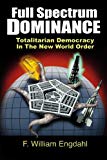
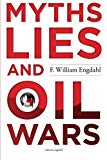


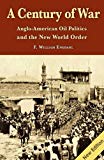













 Since the early twentieth century, Saudi Arabia has enjoyed a close relationship with the United States. From the development of the Saudi oil fields,to the First Gulf War, this relationship has been an uneasy cooperation—each side received something out of the alliance while nervously watching the other. So recently we have the first open break between the two powers culminating in the Saudi’s refusing a seat on the U.N Security Council due to anger with U.S. Middle Eastern policies.
Since the early twentieth century, Saudi Arabia has enjoyed a close relationship with the United States. From the development of the Saudi oil fields,to the First Gulf War, this relationship has been an uneasy cooperation—each side received something out of the alliance while nervously watching the other. So recently we have the first open break between the two powers culminating in the Saudi’s refusing a seat on the U.N Security Council due to anger with U.S. Middle Eastern policies. 